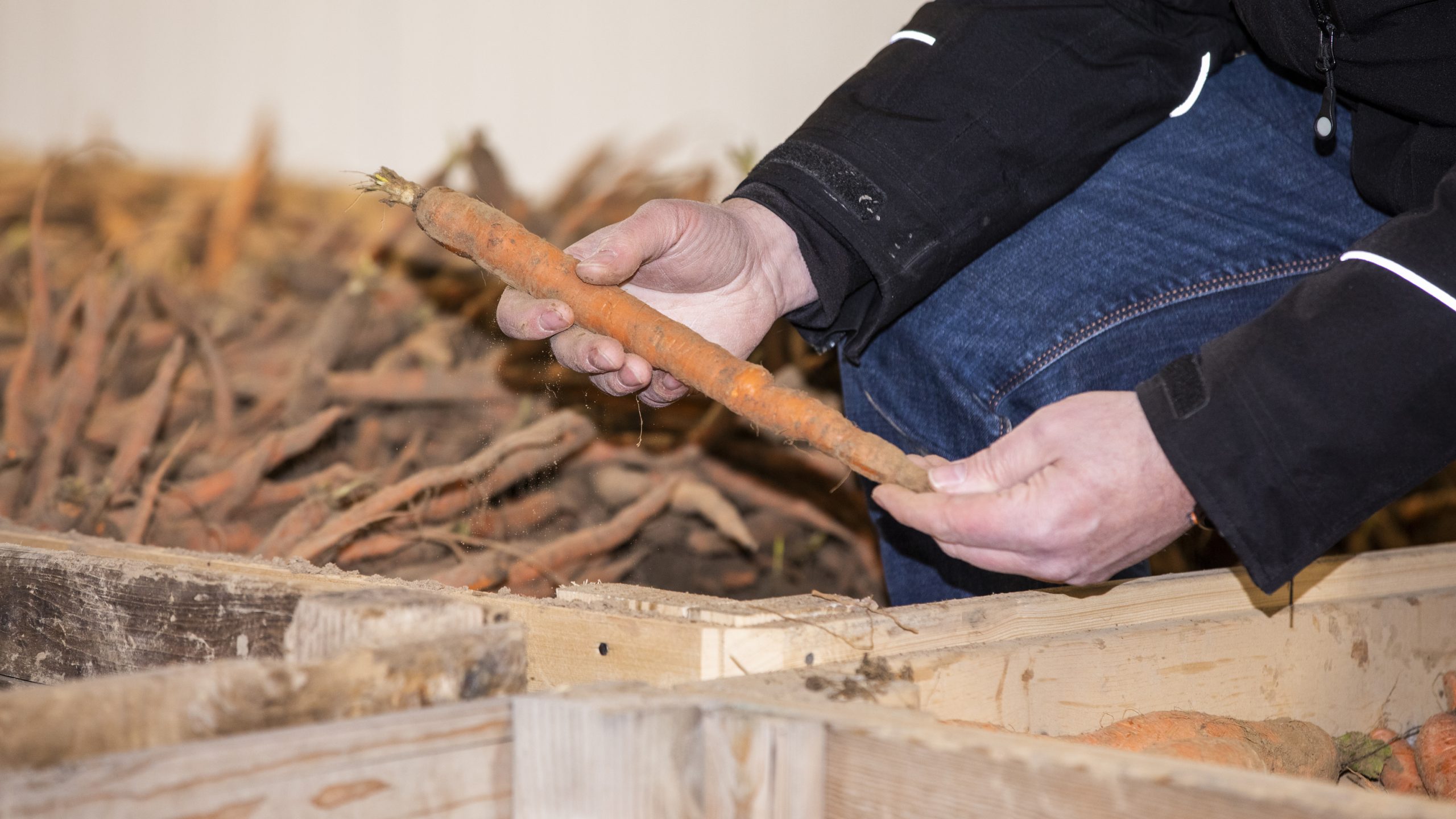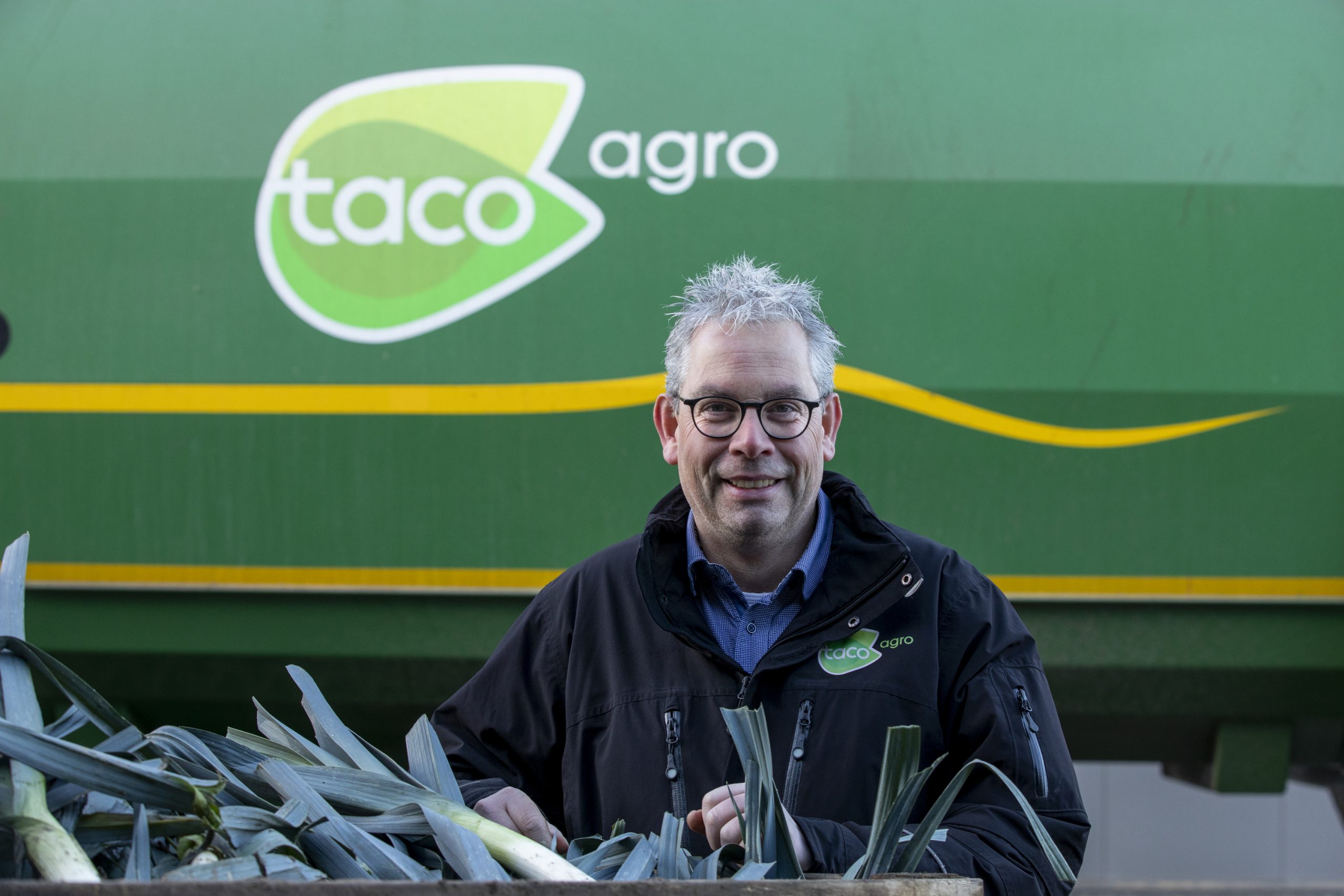Taco Agro, the vegetable grower for the food processing industry, asked for cold stores with a big capacity, suitable to store different kinds of vegetables. In response to Taco Agro’s request, Equans built five sustainable and closed cold stores. The company can now benefit from drying and storing products independently of the outside air. Whereas two cells are suitable for condensation drying, Taco Agro can cool its open-ground vegetables with the other three cold stores. The result? Maximum flexibility!
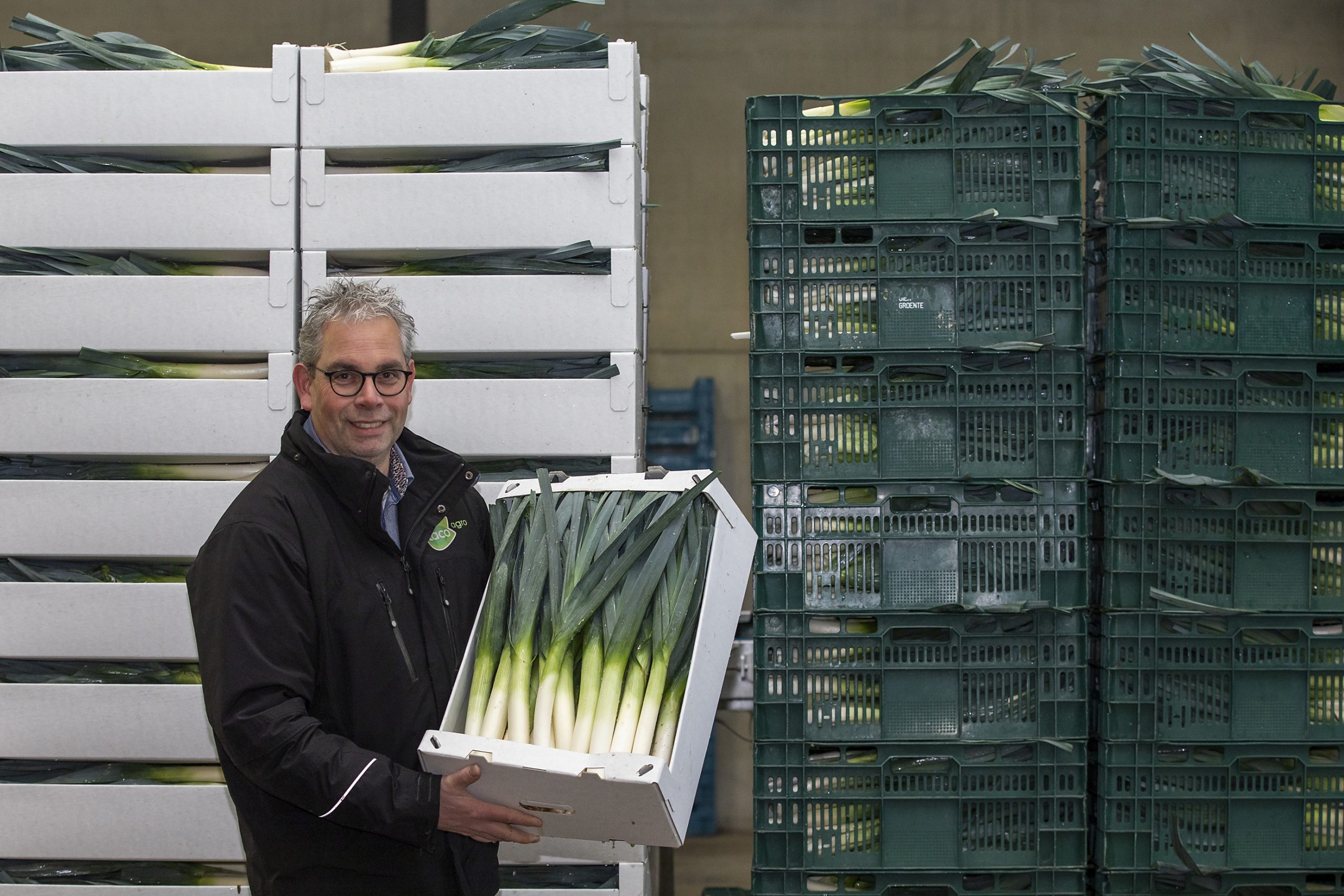
Sander Tacken, managing director of Taco Agro, says: “In the past, Taco only grew potatoes and vegetables. In 2008 the company also started with the storage of products. “At a certain moment, we wanted to expand our cooling capacity. We also wanted to store leek and have the option to store other vegetables and potatoes.”
Since the optimal storage conditions for potatoes, leek, and other vegetables are very different, Equans installed a couple of programs: one for leek, one for potatoes and one for other vegetables. The most optimal storage conditions are included in these programs, such as the optimum temperature, air humidity, and CO2 concentration. Taco can now easily set up the right storage conditions if it wants to preserve another product in the cold store.
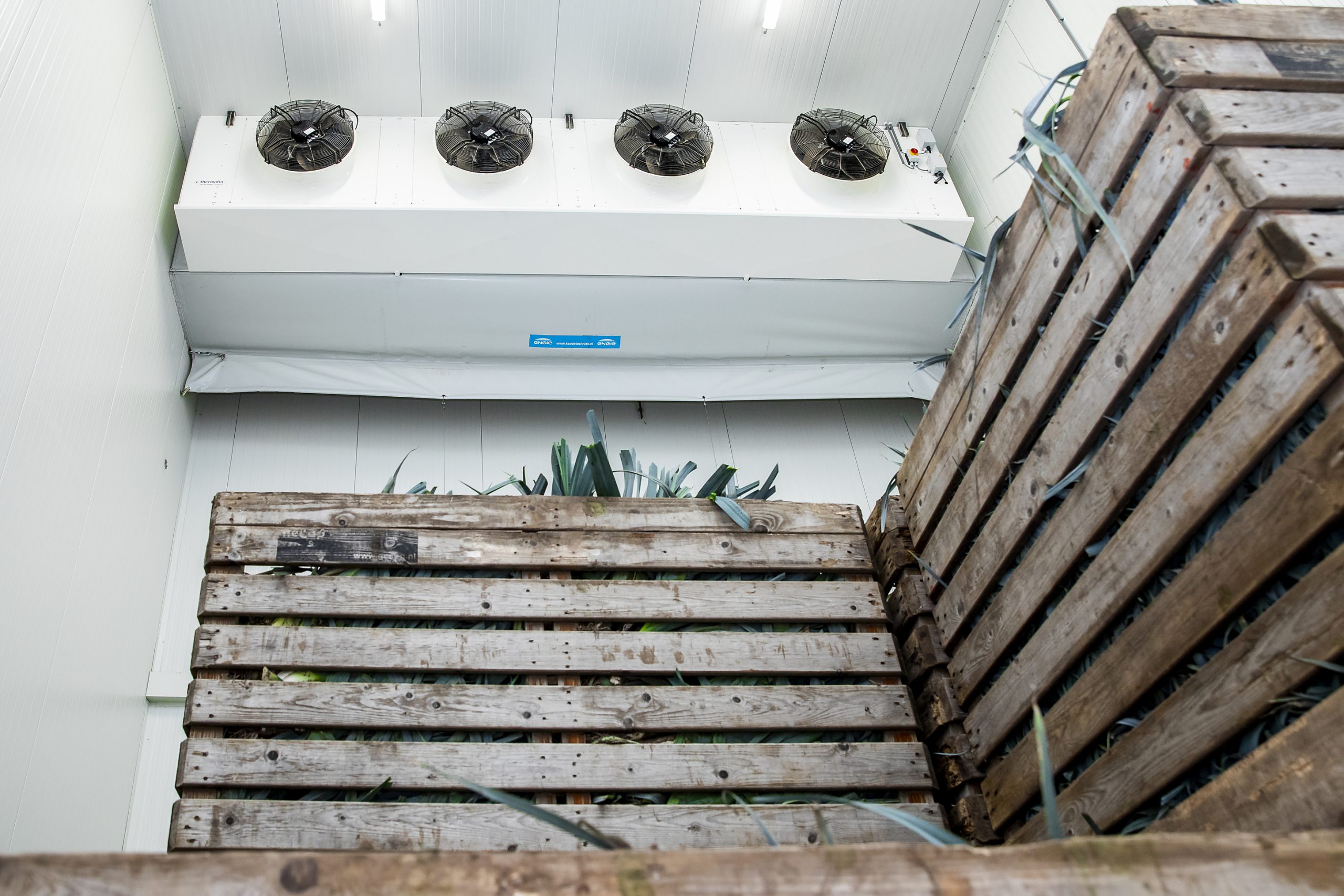
Having an automated program does not mean that Tacken no longer has to check his products. “But we do not want that either. The programs have been set up to ensure that our products are kept in good condition, we will always keep an eye on it and adjust conditions when necessary. After all, the quality of a product heavily depends on the storage conditions at the right time. In my opinion you cannot depend on an automated process only. The combination of a program with the possibility of certain flexibility is ideal for us.
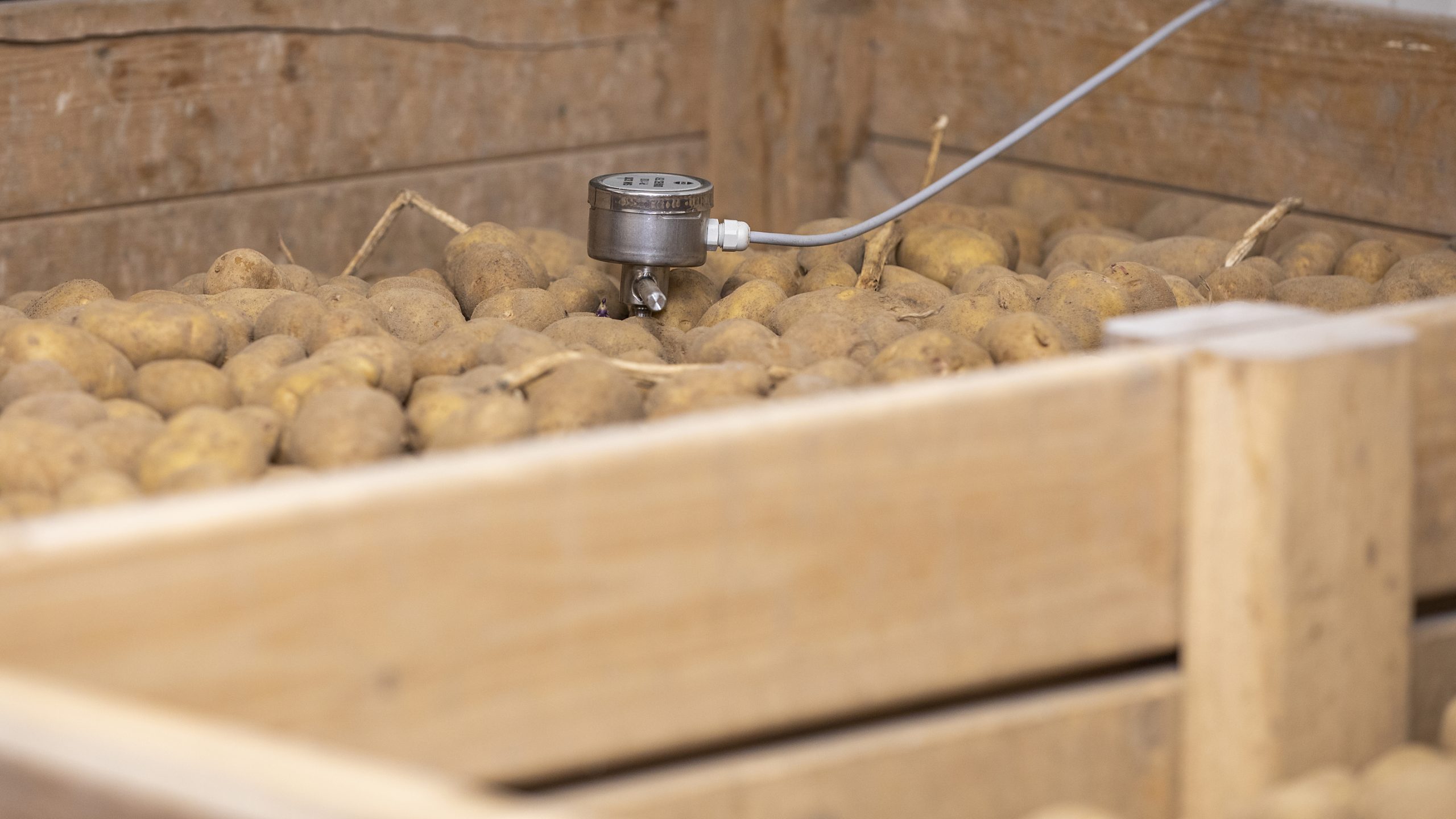
Two cold stores are set up for condensation drying. It turns out to be a great catch: in a cold store with 600 boxes, the new installation extracts up to 2,000 liters of moisture per 24 hours. “We used to dry our potatoes outside before they went into the cold stores. That made us highly dependent on weather conditions. Thanks to the condensation drying system, we can even put wet potatoes into the cold store. In here we quickly dry the adhering moist from the potatoes. After the drying process, we adjust the storage conditions to maintain the high quality of the product as long as possible. This way we ensure optimum return.”
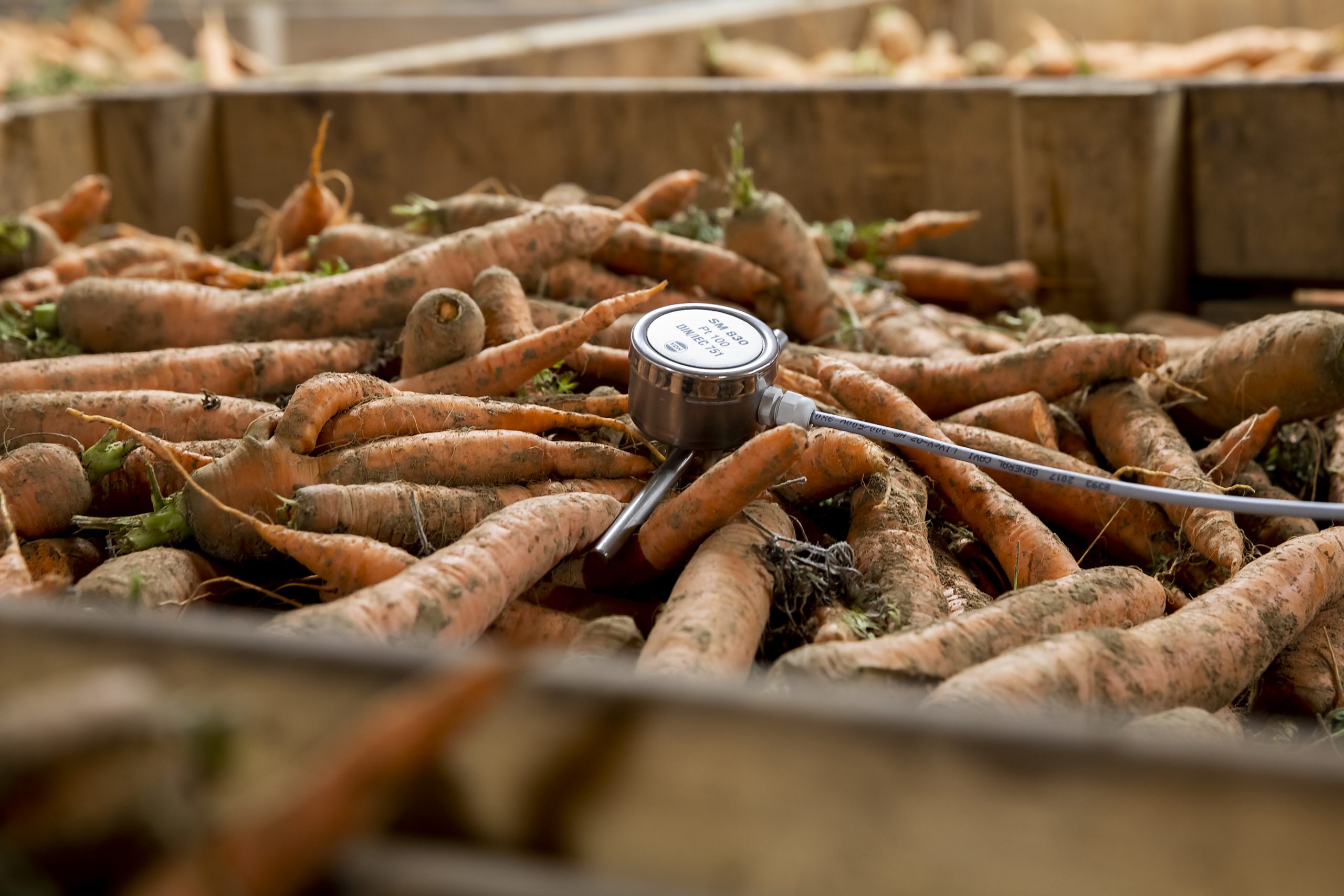
The cooling, freezing and drying installations have been running since November 2017. The natural refrigerant ammonia is a sustainable and future-proof alternative for synthetic refrigerants which were used by the previous and smaller installation. By using residual heat from the cooling process for heating floors and workspaces, Taco’s processes became more sustainable as well. Tacken has added a number of options to his initial request for the expansion of his storage cells. In the past year, for instance, Equans built a buffer tank with an ice-water cooling system to wash the cultivated vegetables.
The season has not come to an end yet, but Tacken already calls the Equans solution a big success. “The past year, we have immediately benefited from the desired flexibility: although the potato yield was a bit disappointing, we could now use our cold stores to preserve carrots. He is also excited about product quality. “Storing products without weight loss is impossible. However, we realized minimum weight loss and our products remained in good quality, with no significant problems at all. It enables us to wait for the perfect trading moment and to always supply customers with the best quality products.
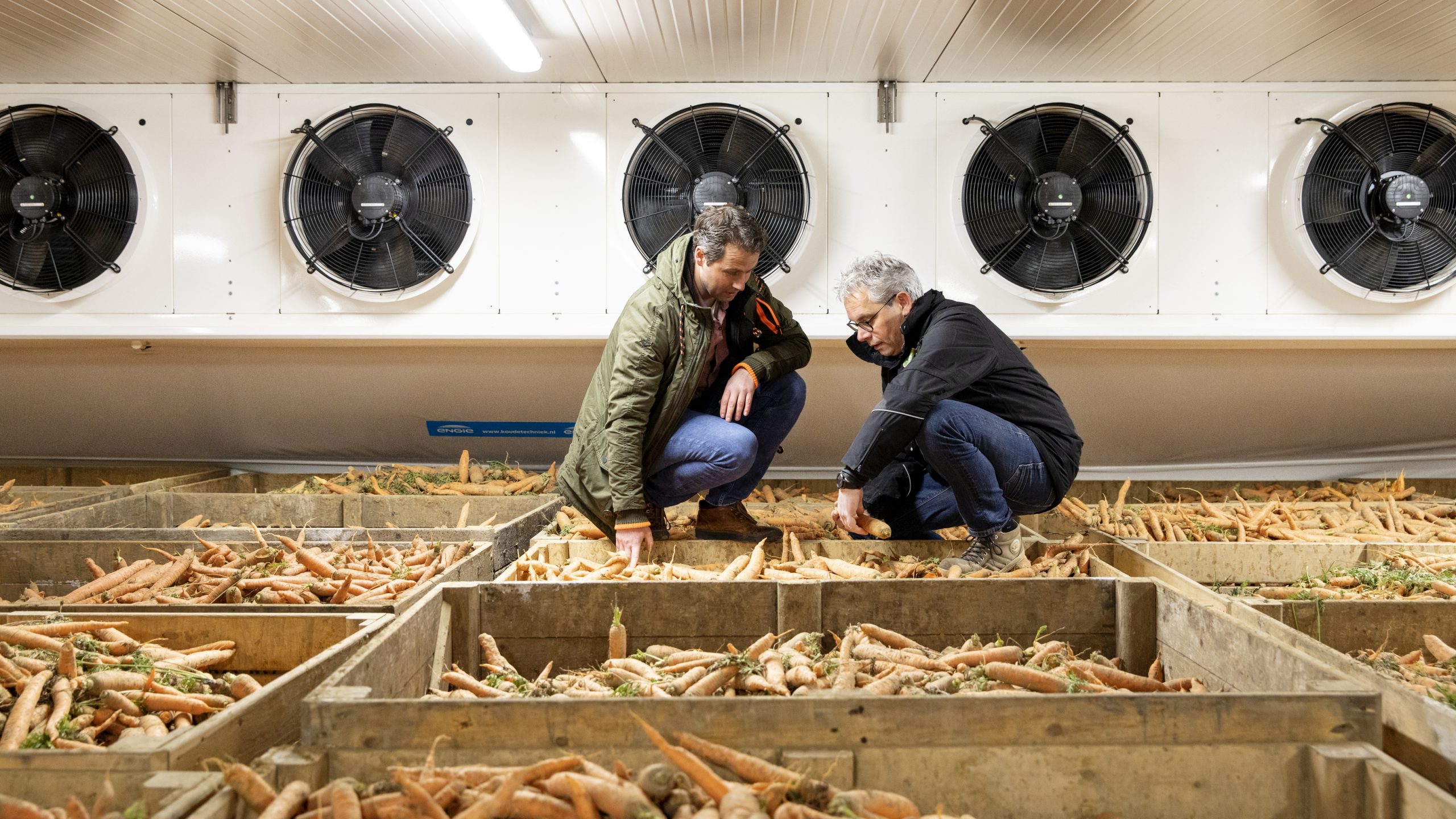
The Project Manager of Equans confirms the good results. “Based on observations of the water meters, we expect Taco’s potatoes to be 3% less dehydrated after a long storage period. Just as with our client Borgmann. Condensation drying has already been proven by arable farmer Custers, who can now dry his onions twice as fast as with conventional drying techniques. The system can be used for various types of agricultural products.
Equans Reference Taco Agro
"*" indicates required fields

